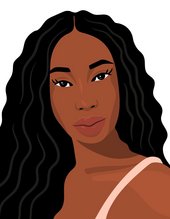This content is part of a paid partnership with CoppaFeel!
As Dellasie ‘Dee’ Avorkliyah sat alone in one of The Royal Marsden Hospital’s waiting rooms, anticipating test results following nine biopsies, not once was she concerned about the results confirming breast cancer.
She was more concerned about picking up her son from school on time, frustrated about the wait and wondering when she would be seen.
“I saw a nurse carrying Macmillan leaflets,” Dee says, “[but] still in my head I’m like ‘that must be for the next person, it can’t be for me.’”
She came to her appointment alone because she was so sure that the worst case scenario wouldn’t rear its head. Yet, once she eventually got called into a room with four healthcare professionals waiting for her, she was faced with the news: stage three breast cancer.
Cancer Research UK states that stage three means that the cancer has spread from the breast to lymph nodes close to the breast or to the skin of the breast or to the chest wall.
I never had any knowledge on how to check my breasts... when I heard [the term breast cancer], it was like an old white woman’s disease.
From the outside looking in, Dee’s nonchalance might seem unbelievable, however, as a black woman and 28 years old at the time of her diagnosis in 2019, her initial response shouldn’t be so surprising.
While breast cancer is the most common cancer in women under 40 and will affect one in seven women in their lifetimes, a Black Women Rising’s 100 Women survey found that 96% of respondents reported that they do not see women of colour represented enough in the media talking about breast cancer.
Only 31% of respondents found women of colour to relate to once diagnosed and nearly half of the respondents received “you’re too young to be diagnosed with cancer” statements from the people around them, further enforcing the widely inaccurate assumption that breast cancer doesn’t or rarely affects young black women.
Additionally this year, breast health awareness charity CoppaFeel! found that self-checking is low among black women because most do not believe that breast cancer is a concern for them right now, particularly as it’s not a common topic of conversation within our communities.
Dee says, “I never had any knowledge on how to check my breasts because [before] when I heard [the term breast cancer], it was like an old white woman’s disease.
“It never really dawned on me to check my breasts or to even think [about] anything related to breast cancer.”
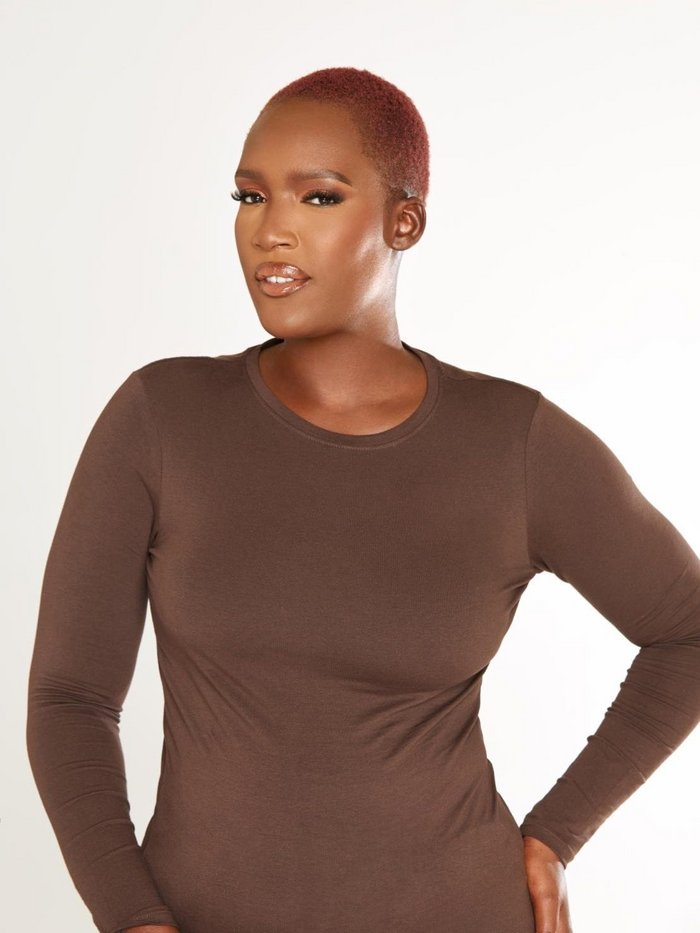
Dee only happened to check her breasts by chance, prior to her diagnosis.
She was watching a BBC show and the focus of the show was breast cancer, featuring older white women sharing their experiences and a few young white women who were affected by family members who had breast cancer, but no black women or young women who had experienced the condition for themselves.
The show also covered how women should check their breasts, so the following day Dee decided to examine hers and found a long lump the size of a grape.
Although she wouldn’t know it at the time (finding the lump didn’t worry her!), this impromptu self-examination would not only impact her body of course, but also her approach to breast health forever.
Thankfully, Dee has been in remission for three years now after going through numerous rounds of chemotherapy and having a lumpectomy. She checks her breasts and armpits every month, after her period, as well as the rest of her body regularly.
However, it took a little while to get to this stage of familiarity and care with her own body.
She says, “They took some of the tissue from my breast away, which caused my breast to be different sizes. Obviously I’m grateful that I was able to keep my breasts and I didn’t have to do the mastectomy in the end, but this isn’t how my breasts used to look, so I felt very odd and I didn’t feel sexy.
“Before [my diagnosis] I was very confident in my body, but the cancer also caused things like early menopause, so I suffered with drying of the vagina. That also made me feel even more unconfident.
“I was trying to chase the old me and get the old me back, but I couldn’t and when I was looking in the mirror, what was looking back was not me and I didn’t like what I saw. It took a very long time to get out of that. Some days are easier than others and I think I’m managing it and just taking each day as it comes.”
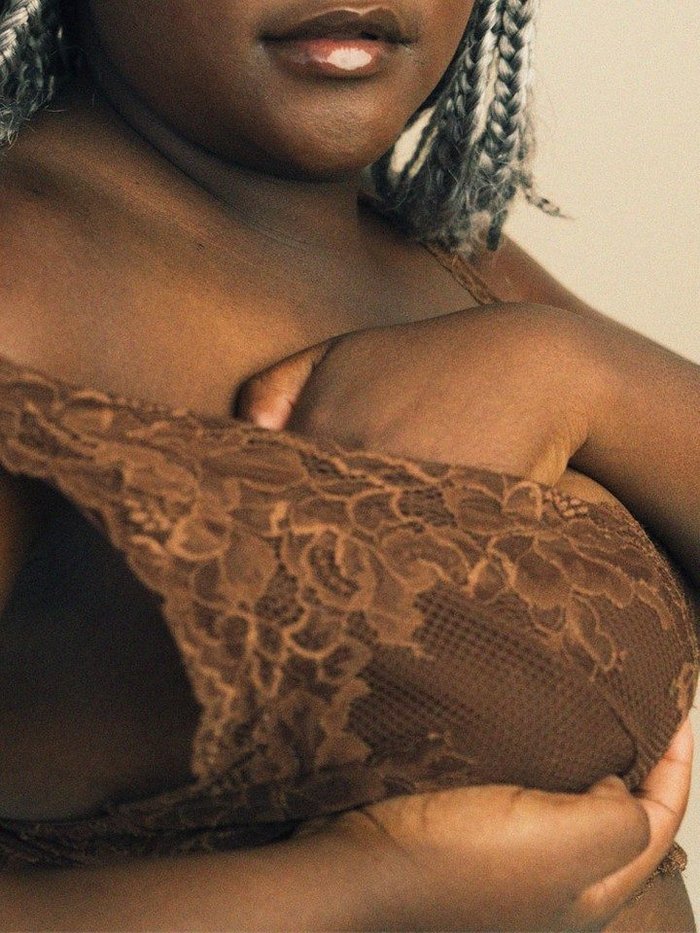
Along with Dee giving herself grace and patience to be kind to her body again, her support system, including her mum, was a huge help too. Dee’s mum would write down Bible verses and affirmations for her to confess over herself every day.
Dee also took to social media, sharing a picture of herself without her hair, including a heartfelt post spreading awareness that cancer does not discriminate, as well as being open and honest about her apprehension.
This step was crucial for both Dee’s journey to healing and other women’s journeys to enlightenment. Following her post, she received countless messages from people confessing that they didn’t think they could get cancer, but making promises to start self-examining.
Visibility truly matters and can be a factor in saving a life. According to the National Cancer Registration and Analysis Service (2018), there are significantly higher proportions of Black British women who are diagnosed with breast cancer at stage four, compared with white British women.
Stage four breast cancer, the most severe stage, means that the cancer has spread to other parts of the body.
So, as well as spreading awareness and putting diverse, realistic faces to breast cancer and breast health, Dee also shares how mandatory it is for young black women to take the condition more seriously, examine themselves regularly and catch any abnormalities as early as possible.
“I always get recommended to [self-check] a few days or a week after my period. Check your breasts in circular motions. Check your armpits, so from your lymph nodes, all the way around your breasts and your nipples.”
To note however, there is no strict method for self-checking. Just do whatever feels right for you. Dee adds: “[One of the] side effects of breast cancer is dimpling of the breasts so you know the little dots of an orange peel?
Breast cancer is treatable and survivable when found early, so develop your knowledge and understanding of breast health.
“If your breasts look like that, that [can be] an indication of breast cancer. Obviously a lump is an indication, an indented nipple and discharge of the nipple are indications as well.
“At the end of the day, you know your body, no one can tell you that you’re making this up or it’s not real. If you feel like the doctors aren’t listening to you call 111, go to A&E or find another option.
“You live within your body, so you know what is your ‘normal’, they don’t, so trust your instincts, trust your gut, and go with that.”
Dee’s message is clear: self-check your breasts often and self-check with confidence.
Breast cancer is treatable and survivable when found early, so develop your knowledge and understanding of breast health, not just for yourself but also for the black women around you, regardless of their age.
Discover more information about breast cancer awareness charity CoppaFeel!
Read more stories on health & our bodies from black ballad
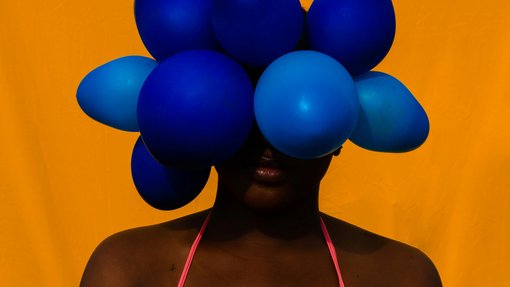
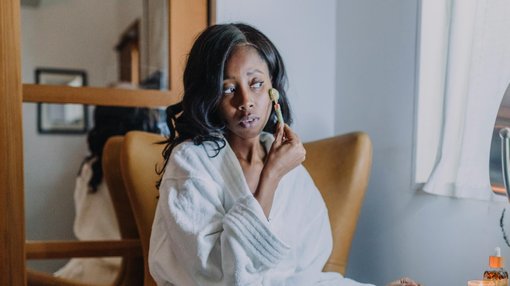
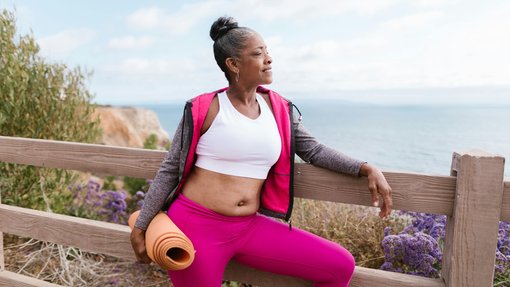
Dr Michelle Nyangereka
Could Cannabis Be The Key To An Easier Menopause For Black Women?
Wednesday 11 December 2024 8:00 AM
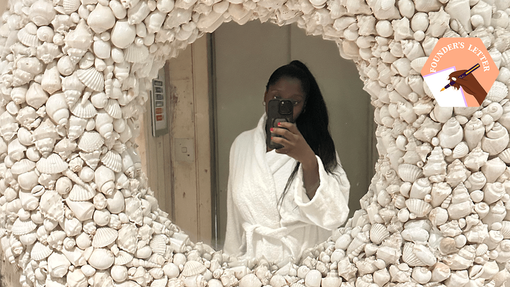
Tobi Oredein
Founder's Letter: Not Waiting For New Year’s To Prioritise My Health
Sunday 8 December 2024 11:59 PM
